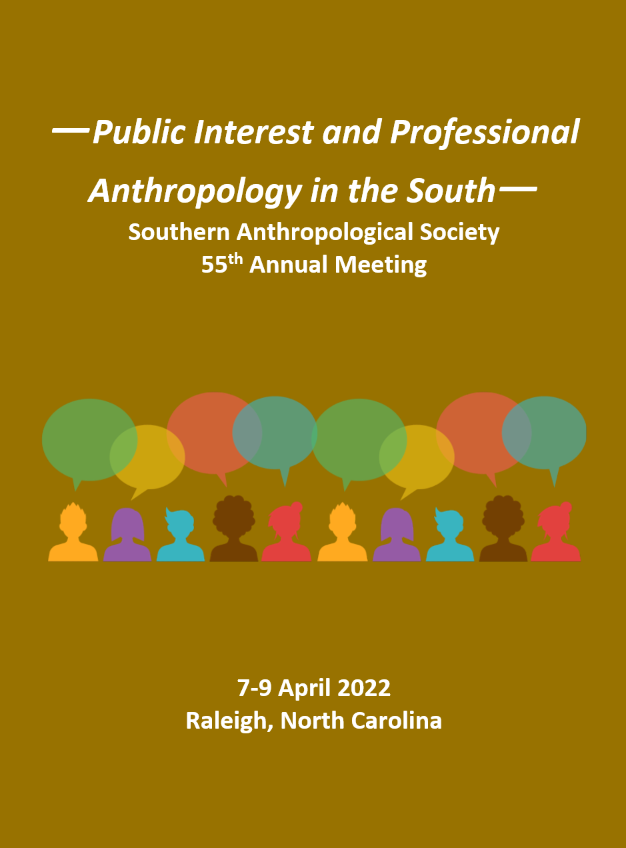
Roundtable: Pedagogy in Crisis Times
Presentation Location
Willow Oak
Document Type
Event
Start Date
9-4-2022 10:15 AM
End Date
9-4-2022 11:30 AM
Description
- Amanda J. Reinke (organizer, chair), Kennesaw State University
- Shelly Yankovskyy (participant), Valdosta State University
- James Daria (participant), Georgia College and State University
- Abby Wightman (participant), Mary Baldwin University
From the valorization of quantifiable productivity, funding cuts, politicization of practices, White supremacy, COVID-19, climate change, and widespread uncertainty, teachers in higher education are facing multiple unfolding crises. Teaching anthropologists have responded to these various crises with questions about equitable evaluation, access to resources, ethics, surveillance, responsive teaching, and emergency pedagogies. We contextualize the contemporary instructors’ teaching experience in higher education within the anthropological literature amid these unfolding crises to ask: How can extant anthropological theories about the nature of care, empathy, structural violence, and entrenched inequality inform our teaching in ways that are responsive to institutional pushes and student needs? How can we use our work in the classroom to challenge institutionalized hierarchies and dominant notions of acceptable method and inquiry? We utilize anthropological concepts and theories that call anthropology home, but which we can apply to deepening understandings of the tensions and opportunities teaching anthropologists face amid crises.
Recommended Citation
Reinke, Amanda J.; Yankovskyy, Shelly; Daria, James; and Wightman, Abby, "Roundtable: Pedagogy in Crisis Times" (2022). Annual Meeting of the Southern Anthropological Society. 18.
https://egrove.olemiss.edu/southernanthro_meeting/2022/schedule/18
COinS
Apr 9th, 10:15 AM
Apr 9th, 11:30 AM
From the valorization of quantifiable productivity, funding cuts, politicization of practices, White supremacy, COVID-19, climate change, and widespread uncertainty, teachers in higher education are facing multiple unfolding crises. Teaching anthropologists have responded to these various crises with questions about equitable evaluation, access to resources, ethics, surveillance, responsive teaching, and emergency pedagogies. We contextualize the contemporary instructors’ teaching experience in higher education within the anthropological literature amid these unfolding crises to ask: How can extant anthropological theories about the nature of care, empathy, structural violence, and entrenched inequality inform our teaching in ways that are responsive to institutional pushes and student needs? How can we use our work in the classroom to challenge institutionalized hierarchies and dominant notions of acceptable method and inquiry? We utilize anthropological concepts and theories that call anthropology home, but which we can apply to deepening understandings of the tensions and opportunities teaching anthropologists face amid crises.
Roundtable: Pedagogy in Crisis Times
Willow Oak
- Amanda J. Reinke (organizer, chair), Kennesaw State University
- Shelly Yankovskyy (participant), Valdosta State University
- James Daria (participant), Georgia College and State University
- Abby Wightman (participant), Mary Baldwin University
From the valorization of quantifiable productivity, funding cuts, politicization of practices, White supremacy, COVID-19, climate change, and widespread uncertainty, teachers in higher education are facing multiple unfolding crises. Teaching anthropologists have responded to these various crises with questions about equitable evaluation, access to resources, ethics, surveillance, responsive teaching, and emergency pedagogies. We contextualize the contemporary instructors’ teaching experience in higher education within the anthropological literature amid these unfolding crises to ask: How can extant anthropological theories about the nature of care, empathy, structural violence, and entrenched inequality inform our teaching in ways that are responsive to institutional pushes and student needs? How can we use our work in the classroom to challenge institutionalized hierarchies and dominant notions of acceptable method and inquiry? We utilize anthropological concepts and theories that call anthropology home, but which we can apply to deepening understandings of the tensions and opportunities teaching anthropologists face amid crises.

